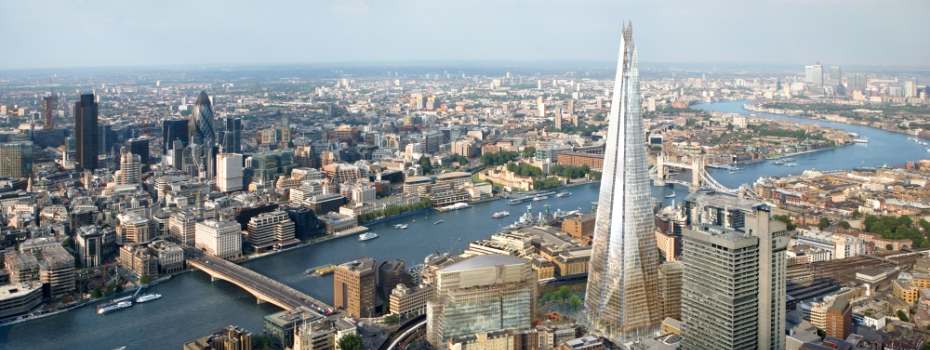London’s Laundry Business
The Opinion Pages
London — the city has changed. The buses are still dirty, the people are still passive-aggressive, but something about London has changed. You can see signs of it everywhere.
The townhouses in the capital’s poshest districts are empty; they have been sold to Russian oligarchs and Qatari princes. England’s establishment is not what it was; the old imperial elite has become crude and mercenary. On Monday, a British civil servant was photographed arriving in Downing Street for a national security council meeting with an open document in his hand.

We could read for ourselves lines from a confidential report on how Prime Minister David Cameron’s government should respond to the Crimea crisis. It recommended that Britain should «not support, for now, trade sanctions,» nor should it «close London’s financial center to Russians.»
The White House has imposed visa restrictions on some Russian officials, and President Obama has issued an executive order enabling further sanctions. But Britain has already undermined any unified action by putting profit first.
It boils down to this: Britain is ready to betray the United States to protect the City of London’s hold on dirty Russian money. And forget about Ukraine.
Britain, open for business, no longer has a «mission.» Any moralizing remnant of the British Empire is gone; it has turned back to the pirate England of Sir Walter Raleigh. Britain’s ruling class has decayed to the point where its first priority is protecting its cut of Russian money — even as Russian armored personnel carriers rumble around the streets of Sevastopol. But the establishment understands that, in the 21st century, what matters are banks, not tanks.
The Russians also understand this. They know that London is a center of Russian corruption, that their loot plunges into Britain’s empire of tax havens — from Gibraltar to Jersey, from the Cayman Islands to the British Virgin Islands — on which the sun never sets.
British residency is up for sale. «Investor visas» can be purchased, starting at £1 million ($1.6 million). London lawyers in the Commercial Court now get 60 percent of their work from Russian and Eastern European clients. More than 50 Russia-based companies swell the trade at London’s Stock Exchange. The planning regulations have been scrapped, and along the Thames, up go spires of steel and glass for the hedge-funding class.
Britain’s bright young things now become consultants, art dealers, private banker and hedge funders. Or, to put it another way, the oligarchs’ valets.
Russia’s president, Vladimir V. Putin, gets it: you pay them, you own them. Mr. Putin was absolutely certain that Britain’s managers — shuttling through the revolving door between cabinet posts and financial boards — would never give up their fees and commissions from the oligarchs’ billions. He was right.
In the austerity years of zero growth that followed the 2008 financial crash, this new source of vast wealth could not be resisted. Tony Blair is the latter-day embodiment of pirate Britain’s Sir Walter Raleigh. The former prime minister now advises the Kazakh ruler Nursultan Nazarbayev on his image in the West. Mr. Blair is handsomely paid to tutor his patron on how to be evasive about the crackdowns and the mine shootings that are facts of life in Kazakhstan.
This is Britain’s growth business today: laundering oligarchs’ dirty billions, laundering their dirty reputations.
It could be otherwise. Banking sanctions could turn off the financial pipelines through which corrupt officials channel Russian money. Visa restrictions could cut Kremlin ministers off from their mansions. The tax havens that rob the national budget of billions could be forced to be accountable. Britain has the power to bankrupt the Putin clique.
But London has changed. And the Shard — the Qatari-owned, 72-floor skyscraper above the grotty Southwark riverside — is a symbol of that change.
The Shard encapsulates the new hierarchy of the city. On the top floors, «ultra high net worth individuals» entertain escorts in luxury apartments. By day, on floors below, investment bankers trade incomprehensible derivatives.
Come nightfall, the elevators are full of African cleaners, paid next to nothing and treated as nonexistent. The acres of glass windows are scrubbed by Polish laborers, who sleep four to a room in bedsit slums. And near the Shard are the immigrants from Lithuania and Romania, who broke their backs on construction sites, but are now destitute and whiling away their hours along the banks of the Thames.

The Shard is London, a symbol of a city where oligarchs are celebrated and migrants are exploited but that pretends to be a multicultural utopia. Here, in their capital city, the English are no longer calling the shots. They are hirelings.
Ben Judah is the author of «Fragile Empire: How Russia Fell In and Out of Love With Vladimir Putin.»
Source: The New York Times.
Translation: Anastasiia Manina, MediaPort™
